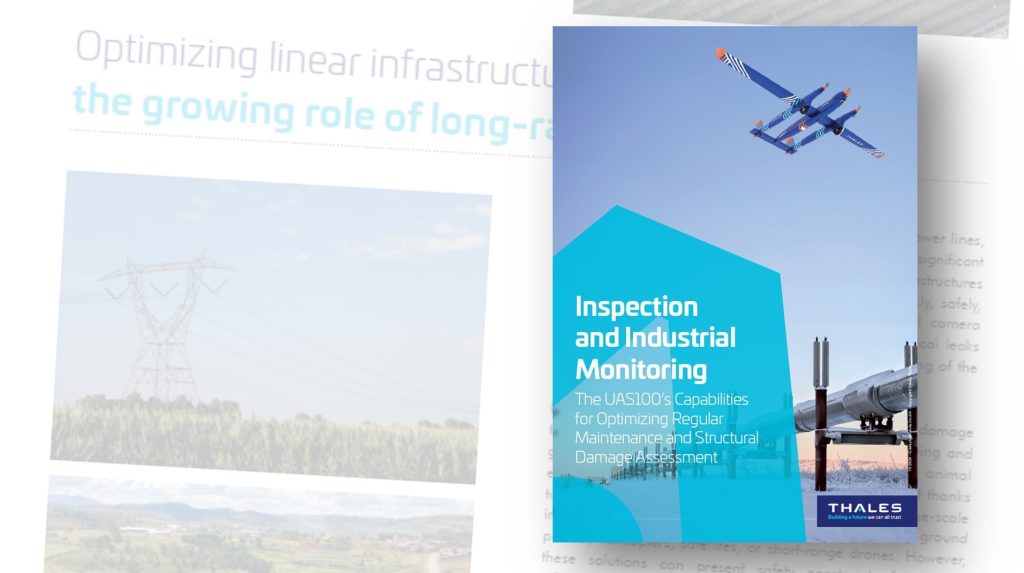
What can long-range drones be used for?
Long-range drones are particularly suited to missions that involve some form of observation, inspection or surveillance. This includes monitoring infrastructure, borders for homeland security purposes, observing the landscape for mapping purposes… anything that requires the collection of imagery. They can also play a role in search and rescue operations. For the time being, the offering in this segment remains limited, requiring intermediate platforms that are larger than small multi-rotor drones, but smaller than large surveillance drones.
What obstacles remain?
Autonomy is the main challenge, in other words finding the right balance between what the ground controller oversees and what the craft does itself. Safety requirements dictated by Certification Authorities are stringent, and the drone’s pre-determined automated behaviour must be highly predictable. There is also the issue of radio connectivity and how to deal with any temporary or even permanent loss of communication. The drone’s autonomy therefore has major implications in terms of navigation accuracy, flight control reliability, and so on. This requires a high level of overall capability that only a handful of industry players can provide.
What regulatory framework is taking shape?
The initial framework was introduced in 2019 and has since been fine-tuned to meet operational needs. European regulations have been defined and are applied by EASA, the European Union Aviation Safety Agency, and include certification, operational requirements and safety standards. Compliance requires that high standards of design, user training, traceability, piloting skills, maintenance, repair capabilities and the like are thoroughly met. These vary according to the risk level of the operation, as defined by the SORA (Specific Operations Risk Assessment) risk assessment methodology.
How is Thales making headway in the field of long-range drones?
Our flagship product range is the UAS100, a fixed-wing, hybrid-powered drone family capable of operating over long distances (200 to 600 linear kilometres according to the version). With several 3.3m wingspan units already performing flight tests, the first flight of the 6.7m wingspan version imminent and full certification expected by the end of 2025, the UAS100 incorporates avionics that combine the safety of certified aeronautical solutions with the lightness and compactness required for a drone. Its design allows it to take off and operate from very restricted areas and the UAS100’s navigation system is jam-resistant, allowing it to operate safely even in dense or cluttered electromagnetic environments. The associated ground station requires only one supervisor, reducing crew mobilisation and team workload. In-flight information is updated in real time for accurate flight supervision and automatic safety checks (weather, obstacle, no-fly zones) performed before flight contribute to the success of each mission. Capture data is stored in a private cloud to ensure a high level of protection and integrity as well as easy access by any authorized user.
What applications can the UAS100 be used for?
The UAS100 is ideal for coastline and border surveillance, law enforcement security over large areas, and inspection of linear infrastructure, and pipelines. For these types of missions, it can definitely be more effective than using ground patrols, helicopters, satellites or short-range drones.
Thank you Lionel!
Thales has recently released a downloadable four-page insight paper illustrating how the Thales UAS100 drone system can deliver a sustainable response to long-range industrial inspection and monitoring needs.







